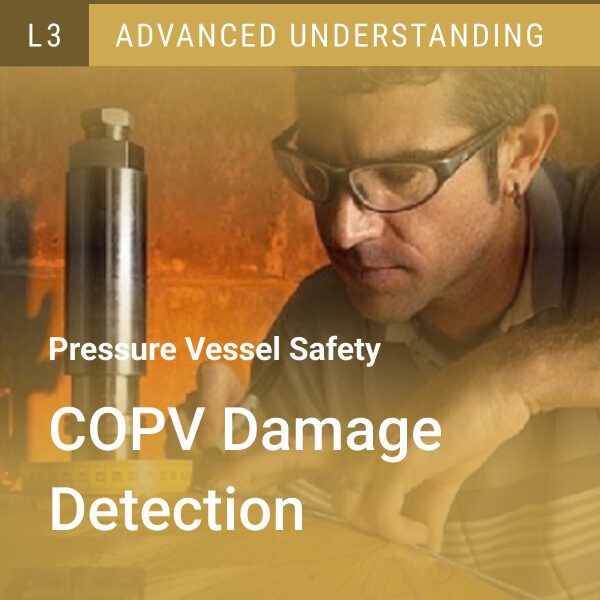Both days from 8 a.m.-5 p.m. This intensive two-day course, divided into multiple sections, covers all COPV technology. To customize the learning experience, the course opens with a discussion about the general education level and needs of course participants. Manufacturing techniques are discussed, from the manufacturing of the base fiber to the liners, and the filament winding of the final component, conveyed by numerous cross-sectioned samples and winding videos. The United States Air Force (USAF) NASA program data for mechanical damage, sustained load, and material compatibility is reviewed. In the impact control section, requirements of the damage control plan, conduction of a credible threat analysis, and elements of meeting damage control and protection are covered. Additional protection schemes demonstrate the importance of COPV protection during all phases of processing; even including shipping containers before the vessel is integrated into the vehicle, as well as the protective covers used post-integration.
Complementary nondestructive evaluation (NDE) techniques investigated during the USAF/NASA program are discussed, along with new and emerging techniques. Laboratory sessions cover available NDE techniques, the photo reference guide, and an instructor’s walkthrough of a visual inspection. Field inspections of program-damaged flight-qualified COPVs are conducted with groups of two performing detailed visual inspections on as many as ten COPVs in field-like environments concluding with a review of the findings and an in-depth discussion of the results. This combination of techniques provides a well-rounded understanding of the technology and qualification to perform visual inspections of Gr/Ep COPVs.

